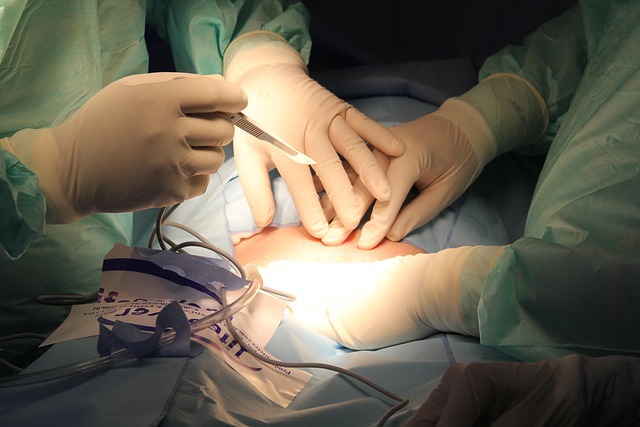Plastic surgery clinics face significant risks and liabilities, from patient expectations to medical complications. Liability insurance is a critical shield, covering legal fees, settlements, and damages in case of claims. It ensures clinics can withstand investigations and lawsuits without financial ruin, allowing surgeons to prioritize patient care and maintain practice sustainability. Tailored liability coverage protects against negligence claims, accidents, and malpractice judgments, meeting diverse clinic needs based on size, specialties, and demographics. Effective risk management, including compliance with regulations and industry standards, fosters trust and clinic success in the competitive plastic surgery field. Regular policy reviews ensure clinics are adequately protected as practices evolve.
In the competitive landscape of aesthetic services, understanding the intricacies of liability insurance for plastic surgery clinics is paramount. This comprehensive guide explores the multifaceted risks and challenges faced by these practices, emphasizing the vital role of adequate coverage. From navigating legal requirements to real-world case studies, we delve into the key components of liability insurance, offering strategies to mitigate risks and ensure protective measures keep pace with industry standards in plastic surgery.
- Understanding Plastic Surgery Clinic Liability: Risks and Challenges
- Importance of Comprehensive Insurance Coverage for Plastic Surgeons
- Key Components of Liability Insurance for Plastic Surgery Practices
- Navigating Legal Requirements and Industry Standards in Plastic Surgery
- Case Studies: Learning from Real-World Examples of Clinic Liability
- Strategies to Mitigate Risks and Ensure Adequate Insurance Protection
Understanding Plastic Surgery Clinic Liability: Risks and Challenges

Plastic surgery clinics, despite their life-changing services, face unique challenges and risks that can expose them to significant liability. Patients seeking cosmetic or reconstructive procedures have high expectations, often leading to potential complications and dissatisfaction if results don’t meet their desires. Medical malpractice claims are a real concern, as these lawsuits can arise from various issues such as surgical errors, infections, adverse reactions to anaesthetics, or poor aftercare. Each procedure carries its own set of risks, including bleeding, scarring, infection, and in rare cases, life-threatening complications.
Liability insurance for plastic surgery clinics is crucial in mitigating these risks. It provides financial protection against potential medical malpractice claims, offering a safety net to cover legal fees, settlement costs, and damages awarded to plaintiffs. Clinics should carefully review their coverage options, understanding the scope of liability protected and ensuring adequate limits to manage high-value claims. Regular policy assessments and updates are essential to keep pace with evolving surgical techniques and changing legal landscapes.
Importance of Comprehensive Insurance Coverage for Plastic Surgeons

For plastic surgeons, having comprehensive insurance coverage is paramount to their practice’s success and longevity. In a field where procedures range from relatively minor aesthetic enhancements to complex reconstructive surgeries, the potential risks and liabilities are vast. Comprehensive liability insurance for plastic surgery clinics acts as a shield, protecting against financial ruin in the event of complications or adverse outcomes. This includes covering medical malpractice claims, which can be significantly costly, allowing surgeons to focus on patient care without the burden of financial worry.
Moreover, this type of coverage ensures compliance with legal and ethical standards. It provides peace of mind that the practice is adequately protected against lawsuits related to negligence, consent forms, or failure to disclose potential risks. With comprehensive insurance in place, plastic surgeons can confidently navigate the complex landscape of patient care, knowing their practice is secure and able to withstand unexpected challenges.
Key Components of Liability Insurance for Plastic Surgery Practices

Liability insurance is a cornerstone of risk management for any medical practice, but it takes on added significance in the realm of plastic surgery. This specialized coverage protects practices and their teams from potential financial repercussions arising from patient care—a crucial aspect given the intricate and high-stakes procedures involved. Key components include professional liability, which covers claims of negligence, and general liability, addressing accidents or injuries occurring on the clinic’s premises.
Additionally, plastic surgery clinics often require coverage for malpractice judgments and legal fees associated with investigations and lawsuits. This ensures that practices can defend against allegations and manage potential costs without endangering their financial stability. The specific needs may vary based on practice size, specialties offered, and patient demographics, emphasizing the importance of tailored liability insurance solutions for each plastic surgery clinic.
Navigating Legal Requirements and Industry Standards in Plastic Surgery

Navigating Legal Requirements and Industry Standards in Plastic Surgery is a complex task, but crucial for ensuring patient safety and clinic success. In addition to meeting state licensing and regulatory standards, plastic surgery practices must adhere to industry best practices, which often include specific training requirements for surgeons and staff. Liability insurance for plastic surgery clinics is an integral part of this process—it protects against potential malpractice claims, offering financial security in the event of litigation.
Comprehensive liability coverage ensures that practices can manage risks associated with procedures like cosmetic surgeries, which carry inherent complexities. By understanding and complying with legal mandates and industry standards, clinics demonstrate their commitment to excellence and patient welfare, fostering trust among prospective patients seeking transformative procedures.
Case Studies: Learning from Real-World Examples of Clinic Liability

In the realm of plastic surgery, where procedures range from aesthetic enhancements to complex reconstructive operations, managing risks and potential liabilities is paramount for clinic success and longevity. Case studies of real-world examples offer invaluable insights into navigating clinic liability. These stories serve as a powerful tool to educate practitioners on best practices and help them avoid pitfalls that could lead to costly settlements or legal repercussions. By studying these cases, plastic surgery clinics can gain a deeper understanding of the risks associated with different procedures and learn strategies to mitigate potential issues.
For instance, examining cases of complications during cosmetic surgeries can highlight the importance of thorough patient assessment, informed consent, and adherence to safety protocols. Similarly, analyzing instances of medical malpractice lawsuits against plastic surgeons underscores the significance of maintaining meticulous records, staying updated with industry standards, and ensuring continuous staff training. Embracing these lessons from real-life scenarios empowers clinics to enhance their risk management strategies and acquire comprehensive liability insurance for plastic surgery practices, a crucial step in safeguarding their reputation and financial stability.
Strategies to Mitigate Risks and Ensure Adequate Insurance Protection

In the realm of plastic surgery, where intricate procedures and patient expectations intertwine, mitigating risks is paramount. The first line of defence lies in meticulous risk assessment and management strategies. Practices should conduct comprehensive pre-operative evaluations to identify potential complications, such as anaesthetic risks, infection, or adverse reactions to medications. Implement robust safety protocols for every procedure, from sterile techniques to post-op care, ensuring adherence to industry standards. Regular staff training on these protocols is essential to foster a culture of safety and mitigate human error.
Beyond these measures, securing adequate liability insurance for plastic surgery clinics is imperative. This specialised coverage protects practices against financial loss in the event of patient injuries or dissatisfaction. Comprehensive general liability insurance should be complemented by professional liability (malpractice) insurance, which shields against claims of medical negligence. Tailor your insurance policy to align with your practice’s specific procedures and risks. Regularly reviewing and updating insurance coverage ensures you remain protected as your clinic evolves, providing peace of mind in this dynamic field.
